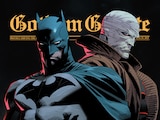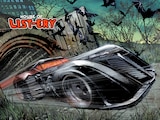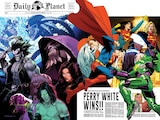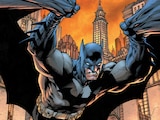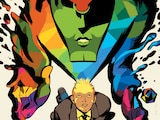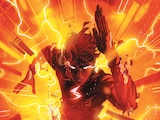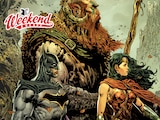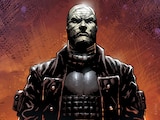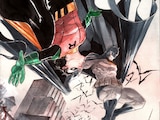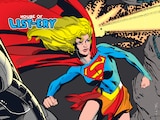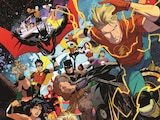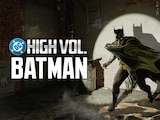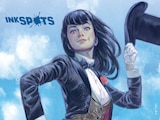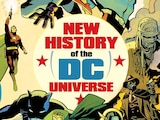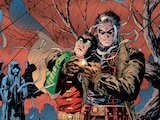Freddy never really told Billy Batson about the importance of having a great superhero theme in Shazam!, but that’s okay. Benjamin Wallfisch has that well taken care of.
After an early career built largely on scoring dramas, Wallfisch has been quickly climbing the blockbuster ranks, first with some stints composing alongside Hans Zimmer on movies like Hidden Figures and Blade Runner: 2049 before grabbing attention with some truly remarkable horror scores for Annabelle: Creation and It (he’s currently working on the score for It: Chapter Two). That may seem like an unusual resume for creating music to accompany DC’s newest big screen superhero, but Shazam! isn’t your typical superhero movie.
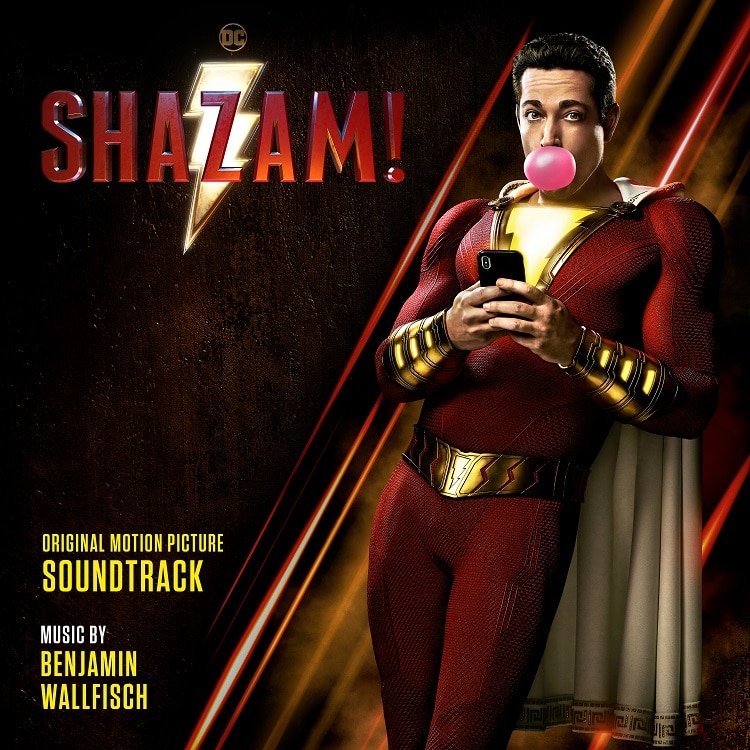
As anyone who’s seen it knows, Shazam! incorporates a variety of tones and genres into its storyline, allowing Wallfisch to draw from all throughout his diverse background. His experience working with Zimmer, who has composed some of DC’s most iconic scores, doesn’t hurt either. However, his single most integral quality may be his unabashed love of music as an art form. For a movie that wears its heart on its sleeve, it’s nice to know that its composer does as well.
We recently spoke with Wallfisch about Shazam! and how he approached writing music for this unique superhero film. He also shared an exclusive behind-the-scenes video that sheds further light on his process, which is appropriately magical.
How familiar were you with Shazam as a character before you started work on the movie?
To be honest, I wasn’t aware of the character before David and I started speaking about the movie, but I had a fantastic time exploring the rich history and mythology of Shazam even before shooting began. There’s so much depth to wrap your head around. David invited me to set in Toronto and it was incredible to see in person how that was all being interpreted and brought to life in such a vivid way.
This score seems to be in the tradition of classic popcorn movies. At times, listening to the main Shazam! theme, I was reminded of John Williams’ Spielberg movie scores. Was that what you were going for?
As a kid, I was completely obsessed and in awe of the music of John Williams, and of course still am. I was so lucky to grow up in the ’80s with all those incredible Amblin movies, and one of the first things David and I started talking about was our shared love of those scores. Of course, it’s impossible to come close to the genius of that music—it’s completely in its own universe. I guess I was just trying to channel the awe and wonder I always feel when I hear his music, and kind of interpret it in my own way.
Often whilst writing a cue for this movie, I kept asking myself, “What must it feel like to be a kid one minute, and a superhero the next? That sense of incredible wish fulfillment, optimism and hope. What does that sound like?”
I guess I was also picturing what might happen if a 14-year-old was put in front of a 100 piece orchestra and told there were no limits. I wanted the score to feel like it might have been written by an exuberant kid just having the time of his life with an orchestra.
Shazam!, much like Aquaman before it, seems to juggle different genres and tones at times. You have moments of superhero action, but you also have comedy and horror. As a composer, how do you write a score that serves those different moments, but still feels organic?
The main thing was to figure out a suite of character themes before I wrote a note of music to picture, so that there was a sense of having musical motifs and ideas that evolve throughout the film, constantly bouncing off each other. There’s an incredible character arc in this movie, both for Shazam and all the supporting characters, and they all needed distinct melodies: the Sivana theme, the Wizard theme, the music for the Seven Deadly Sins, the family theme and of course Shazam’s themes—he needed two: a Hero theme and a Transformation theme. I spent about a month developing that material before I started figuring out how to make it work to picture. I set up a large magnetic whiteboard next to my writing rig and literally stuck all those themes up there on sheets of manuscript paper so I could constantly remind myself of the score’s DNA.
You’ve worked with Hans Zimmer in the past, who’s composed some truly amazing scores for DC superheroes. What did you learn from him that helped you create music for Shazam!?
I feel so fortunate to count Hans as both a mentor and a friend. I’ve learned so much from him over the years we’ve collaborated, in particular, the importance of thinking like a filmmaker first when writing a score. His relentless emphasis on ‘story first’ I think is one of the reasons his themes are always so iconic, and somehow irresistibly part of the film’s fabric. He’s also got a sixth sense when it comes to really getting inside what a filmmaker might be after, and translating that into music—something I’ve been lucky enough to spend many hours witnessing over the last few years. Also, kind of ‘duty’ we have to music as an art form: to always strive for a level in both the writing and the production that 99% of the time feels just out of reach. Even if it means writing to 4am every night to get there.
Shazam’s name is an acronym that describes his powers: the wisdom of Solomon, strength of Hercules, stamina of Atlas, power of Zeus, courage of Achilles and speed of Mercury. Which of those would be most helpful for scoring movies?
I guess it would be a bit of a dodgy character name: AAM! Stamina and speed are certainly very helpful when having to write four minutes of music every day. But personally, I think the main thing would be courage—music should be an adventure.
Shazam!: Original Motion Picture Soundtrack is now available for streaming, download or purchase. Click here to listen or buy now.

